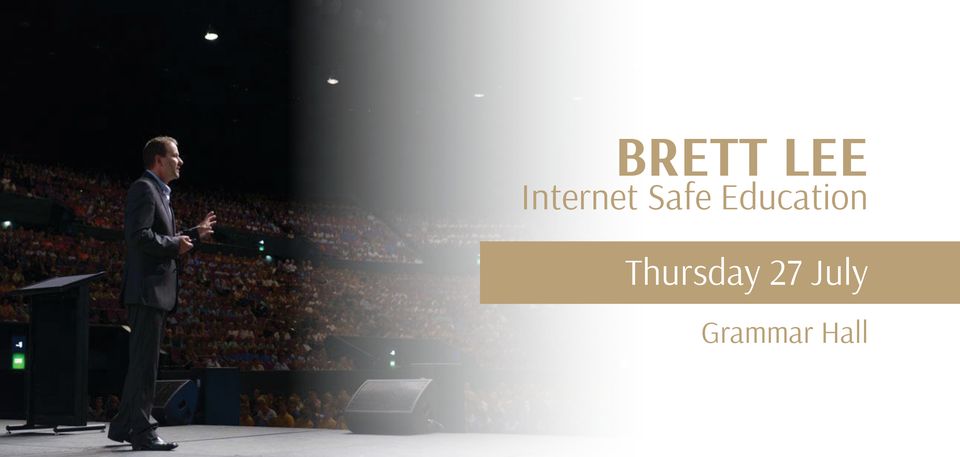In light of the recent Australian Government’s decision to ban Tik Tok on all government devices and the growth of social media platforms, it is timely to ask the question, “Who is influencing our children?”
We have seen how social media has become an increasingly popular way to communicate and share information and note that influencers have become a major part of this space. Influencers are individuals who have a large following and are often viewed as experts or authorities on topics that range from fashion and beauty to travel, fitness, food, and more. While influencers can have a positive impact and be a source of inspiration and motivation, it is important for parents to understand the potential risks associated with them, including the potential false information, negative body image, and inappropriate content.
I will make an admission here that my teenage years never had the internet or a thing like social media. Having spent 34 years in education, I wholeheartedly believe the absence of social media made growing up less complicated. Based on my experience working in student welfare for decades, social media, unfortunately, gives us an insight into the side of humanity we all wish did not exist. I was naturally filtered from radical viewpoints, violence and other adult themes, by the mere fact I could not access them. For our youth today, the absence of filters allows these insidious topics to pervade their young lives. Teenagers have the ability to decide who they follow without any controls, unlike mainstream media, which has many regulations and guidelines under which they operate. Whilst we have regulators and watchdogs designed to keep print and broadcasters somewhat in line, one must question just how effective our regulators are in the social media space.
What are the secrets to being successful and generating thousands of young followers?
Whilst there are many, two that come to mind are relatability and authenticity. Teenagers are drawn to influencers who share their personal stories, experiences and opinions in a relatable way. Being relatable means they are often people who address topics relevant to our teenagers, topics such as body image, fitness, their own successes and failures, mental health, diversity, inclusion and much more.
Many influencers’ authenticities come from the fact that they fit a similar age demographic to their audience. This is particularly helpful for younger people trying to find their footing in the world, as it gives them a role model to learn from and admire. Teenagers are drawn to influencers who share their personal stories, experiences and opinions. They want to hear what influencers have to say and they want to be part of the conversations they’re having. Using platforms such as Instagram, TikTok and YouTube allows the audience to make commentary and show their appreciation (likes) for the content being created by the influencer.
Social media influencers can have powerful effects on their followers, from inspiring them to lead healthier lifestyles to influencing the way they dress and express themselves. While this newfound power can be used for good, many of these influencers are not held to the same standards of accountability as traditional celebrities or public figures, which can lead to dangerous consequences for the teens who follow them. It is important for parents to understand there will always be risks associated with following someone on social media if that person does not share your same values. Parents should also be aware of the demographics of influencers, the number of followers they have and the social media platforms they use.
One of the biggest risks is the potential for false or misleading information to be produced. While some influencers are knowledgeable and have good intentions, not all of them are and it is important for followers to be aware of this and take their advice with a grain of salt. It can often be difficult as a young and impressionable teenager to make the distinction between simple opinion and fact. This is often a skill that develops as we get older. The other thing to consider here is the need for our young people to find their identity and have a sense of belonging. Following someone on social media may fulfill these needs.
There is a long list of influencers who incite hate and cover content that simply should not enter a young person’s life. Self-proclaimed experts with no qualifications yet have access to a vehicle that can reach millions and the potential to do real damage. In some cases, the more controversial the content the more appealing it may seem. Some content creators aim to deliberately cause hurt by using disturbing images and offensive language.
The risks associated with following social media influencers can be minimized if parents take the necessary steps to keep their teenagers safe online. First and foremost, parents should talk to their teens about the potential risks associated with following influencers and remind them of the importance of making good decisions. Have conversations about the topics they are being exposed to, learn the importance of asking why and find the real purpose behind the influencer’s posts. It is important to encourage teens to research influencers before following them and to be discerning about what type of content they consume.
Additionally, parents should monitor their teens’ social media usage and be aware of the type of content they are exposed to. When in doubt, parents should err on the side of caution and block or report any influencers that are promoting unhealthy or dangerous behaviours. The challenge for educators is to continually teach our students how to effectively evaluate the credibility of information they are being exposed to and to act more like journalists rather than consumers.



By Darren McLeod-Paterson
Head of Secondary School
